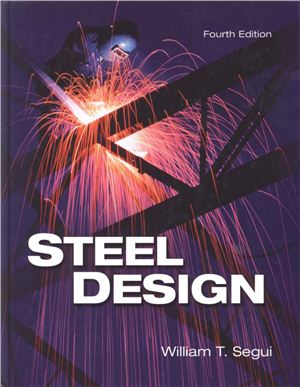Fouth edition, Thomson, 2006, 696 pages
Steel Design covers the fundamentals of structural steel design with an emphasis on the design of members and their connections, rather than the integrated design of buildings. Not only is Steel Design a revision of LRFD Steel Design, it also encompasses the 2005 unification of LRFD and ASD as is covered in the Steel Construction Manual. The book is designed so that instructors can easily teach either LRFD or ASD, or both, time-permitting, as the differences in the two approaches are mostly conceptual. The application of fundamental principles is encouraged for design procedures as well as for practical design, but so is a theoretical approach, enhancing the students development. While the book is intended for junior-and senior-level engineering students, some of the later chapters can be used in graduate courses. Due to the changes that were made to many provisions of the Steel Construction Manual, practicing engineers will find this text useful in reviewing current practices and it will be an essential reference tool.
Steel Design covers the fundamentals of structural steel design with an emphasis on the design of members and their connections, rather than the integrated design of buildings. Not only is Steel Design a revision of LRFD Steel Design, it also encompasses the 2005 unification of LRFD and ASD as is covered in the Steel Construction Manual. The book is designed so that instructors can easily teach either LRFD or ASD, or both, time-permitting, as the differences in the two approaches are mostly conceptual. The application of fundamental principles is encouraged for design procedures as well as for practical design, but so is a theoretical approach, enhancing the students development. While the book is intended for junior-and senior-level engineering students, some of the later chapters can be used in graduate courses. Due to the changes that were made to many provisions of the Steel Construction Manual, practicing engineers will find this text useful in reviewing current practices and it will be an essential reference tool.

